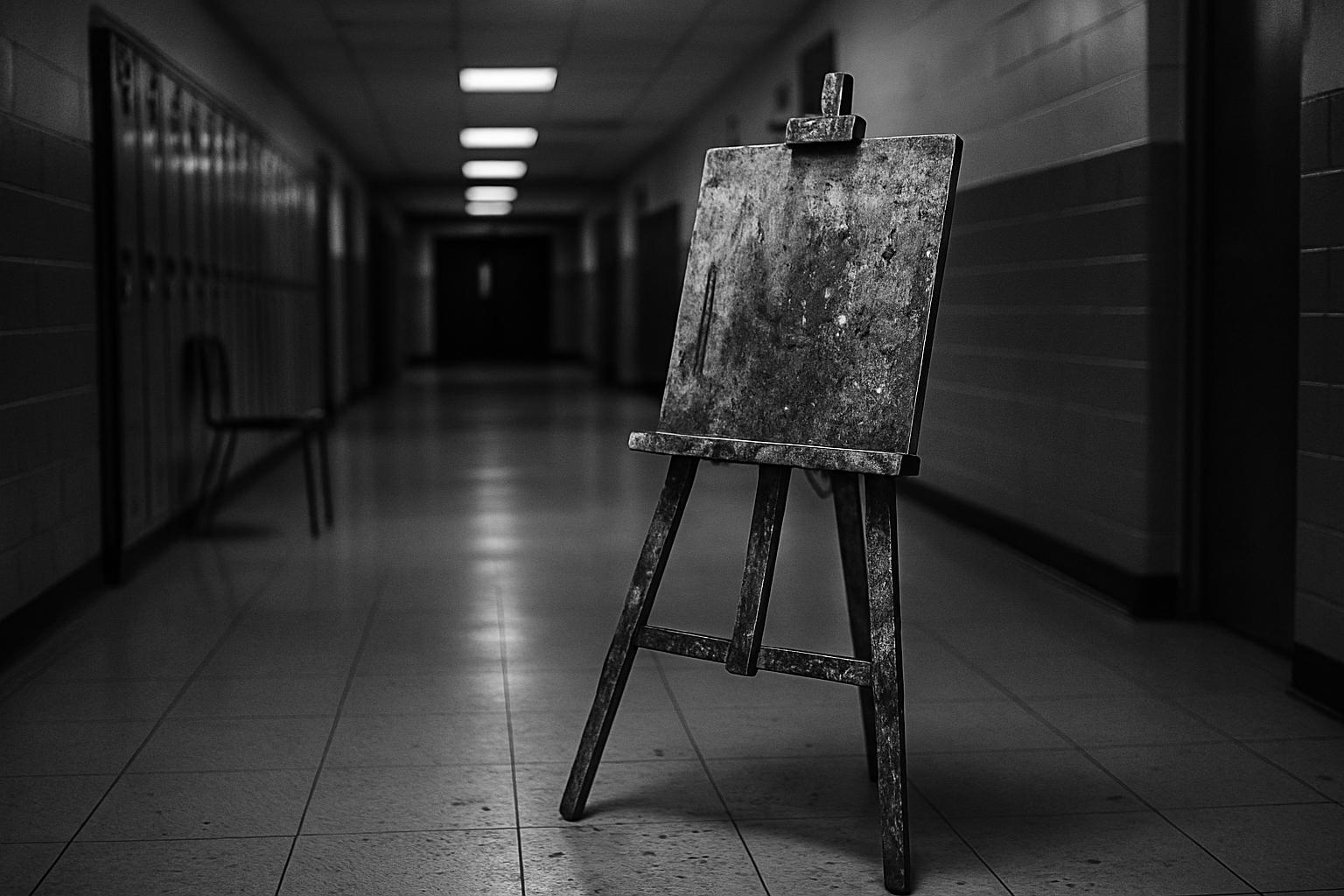The remarkable success story of Owen Cooper, a young British talent rising from a community class to triumphantly claim an Emmy on the Hollywood stage, has captured the nation’s heart. His achievement serves as a beacon of what local arts education can foster when opportunities are available. Yet this celebration comes at a time when the very ecosystem that nurtures such talent is rapidly eroding. According to the Campaign for the Arts, the number of pupils taking GCSE Drama—a foundational stepping stone for many aspiring performers—has plummeted by over 40% in the past 15 years, with some schools eliminating the subject altogether.
This decline is part of a broader national crisis in arts education that has been widely remarked upon by educational experts and policy commentators. An article in the Financial Times, penned by a veteran educator with four decades of experience, describes this trend as a “national scandal.” The introduction of the English Baccalaureate (EBacc) in 2010 is identified as a critical turning point, shifting government focus and resources away from the arts towards traditional academic subjects. This shift, while improving cognitive skills in some areas, has reportedly been detrimental to creativity, confidence, and workforce readiness among young people. Data from the Cultural Learning Alliance corroborates these concerns, showing steep declines in arts subject enrolments, especially in deprived areas. Calls for urgent government intervention include proposals to guarantee four hours of arts education weekly and improve training for arts teachers, aiming to restore the creative vibrancy of schools and align with OECD recommendations to promote education that supports “human flourishing.”
Further evidence from the House of Lords Education Committee provides a detailed look at the scale of the decline. The latest figures show that only 5% of pupils took Music GCSE, 8% took Drama, and a mere 1% took Performing/Expressive Arts in 2023, with all these subjects experiencing significant decreases since 2010. Drama entries, for instance, have fallen by around 40%. While some argue these declines might partly reflect shifts towards vocational and technical qualifications, the reduction in traditional arts GCSEs remains stark. The committee’s findings spotlight a worrying contraction in the arts' role within the broader curriculum.
Supporting these parliamentary findings, reports from Drama & Theatre and Campaign for the Arts confirm the downward trend. Drama GCSE entries in England have dropped nearly 40%, from over 81,000 in 2010 to just under 50,000, with further declines reported in A-Level Drama as well. These declines underscore a systemic issue rather than short-term fluctuations, signalling urgent need for reform to safeguard arts education pathways.
The latest Cultural Learning Alliance report shines a light on additional challenges underlying this crisis. GCSE arts entries have fallen by about 35% since 2015, with major falls in Drama and Music in particular. Supply-side constraints—such as schools’ difficulties in maintaining adequate staffing and funding for arts subjects—are cited as significant barriers limiting pupil access. The report also suggests that pandemic-era disruptions may have contributed to reduced arts uptake, especially in disciplines requiring group activities.
In parallel, media coverage by The Guardian indicates a broad pattern where the popularity of arts subjects like Drama, Media, and Performing Arts continues to decline, while entries for subjects such as maths, physics, and computing rise. This shift aligns with government performance measures favouring academic subjects under the EBacc framework. The National Education Union has described the figures as indicative of a “catastrophic” trend for arts education, warning that the erosion of creative subjects could have long-term detrimental consequences for the education system and future workforce diversity.
The narrative of Owen Cooper—while inspiring—thus stands in contrast to the shrinking landscape of arts education in Britain. His success story should serve as a clarion call to policymakers rather than a feel-good exception. Without substantial investment, structural reform, and a renewed commitment to valuing creative education, the country risks extinguishing the very pathways that produce the next generation of talent. Reversing these trends is not merely about preserving the arts for their own sake but about fostering creativity, confidence, and holistic personal development essential for thriving in an increasingly complex and innovative world.
📌 Reference Map:
- Paragraph 1 – [1], [5]
- Paragraph 2 – [2], [6]
- Paragraph 3 – [3], [5]
- Paragraph 4 – [4], [5]
- Paragraph 5 – [6]
- Paragraph 6 – [7]
- Paragraph 7 – [1], [2], [3], [4], [5], [6], [7]
Source: Noah Wire Services
